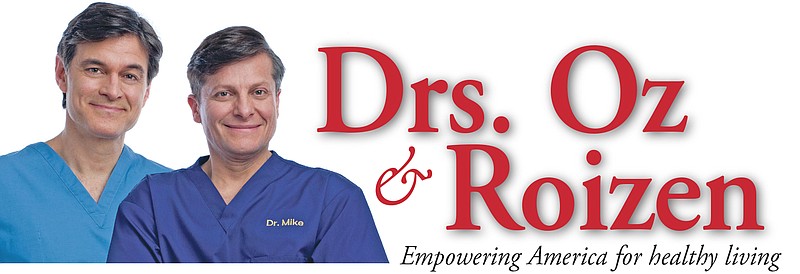Banishing unhealthy and cultivating healthy (yes, healthy) stress
Stress that turns to chronic distress, well, clearly that's negative, harming your physical and mental well-being. The persistent, vibrating, knotted-up sensation can cause aches and pains, headaches, gastro-woes, sexual dysfunction, dizziness, grinding of teeth and sleep problems, and can increase or suppress your appetite and make you more vulnerable to infection, heart disease and other chronic illnesses. It can also affect emotional well-being: Mismanaged stress becomes distress, and chronic distress can trigger depression and anxiety.
But stress that turns to action, cleverness, problem-solving and excitement - that can be productive, even enjoyable, and new research shows it may even improve your brain power. In fact, folks who say they don't feel stress turn out to do less well on cognition tests, and the difference in cognition is equal to more than eight years of aging, according to a study published in Emotion. The chronically stress-free are also less likely to experience positive events and to give or receive emotional support, add the researchers from Penn State. Boredom and lack of motivation can set in.
So how can you dismantle your chronic negative stress response and harness the benefits of positive stress?
Toning Down Your
Chronic Stress Response
Identify your stress triggers: Certain people, places or situations might inevitably cause you distress. Admit it - out loud, either to yourself and written down in a journal or to a close friend or family member (or therapist). That will help keep distress from sneaking up on you and ruining your day!
Expel the stress: The triumvirate of stress-busting techniques is aerobic exercise, meditation and deep breathing. They lower levels of stress hormones, and that relaxes your muscles, improves your mood, eases aches and pains, and restores calm. Your goal: 60 minutes of moderate activity every day; 10-15 minutes of meditation every morning; progressive muscle relaxation and/or deep breathing routine every night before bed. Check out DoctorOz.com for instructions.
Reduce worry: That may sound hard to do, but small steps will make a big difference.
1. Practice gratitude, acknowledging the good parts of your day and life.
2. Do altruistic and generous acts, big or small, daily.
3. Learn to say no when you're feeling overloaded.
4. Stay connected with people who keep you calm, make you happy, provide emotional support and help you with practical things.
Cultivating Positive Stress
We know stress is a positive response when a grizzly bear or some random mugger is threatening you - it spurs you to get away or fight off the danger. In those moments, your body goes through hormonal and biochemical changes that cause an increase in heart rate, blood pressure and respiration, and a blunting of your pain response. Your muscles twitch with the impulse to act - immediately. But that's not the kind of positive stress we are talking about here. We are talking about the stress that comes from doing something that challenges you enjoyably, from extending yourself to care for another person, and from learning or experiencing something new. Turning a challenge into a welcome opportunity - that's the experience of positive stress we want to help you cultivate.
Pick a new activity. Walking 10,000 steps a day, learning Italian, asking your boss for a new project, anything will do to get started. Then plan and execute it - making sure to praise yourself for your accomplishment (post it on social media to get friends' praise, too).
Set an attainable daily goal. Make this easy - calling a friend, making your bed (if you don't usually), brushing the dog. Accept that having to do something is positive not negative; it will teach your body a new way of reacting.
Reframe a worry. Instead of focusing on how hard it is to help your ailing mother get to the doctor, consciously tell yourself to appreciate the fact that you still have time together. Focus on what is, instead of what's lost.
And whatever you do, don't stress about destressing or redefining your stresses!
Mehmet Oz, M.D. is host of "The Dr. Oz Show," and Mike Roizen, M.D. is Chief Wellness Officer and Chair of Wellness Institute at Cleveland Clinic. To live your healthiest, tune into "The Dr. Oz Show" or visit sharecare.com.
(c)2021 Michael Roizen, M.D.
and Mehmet Oz, M.D.
King Features Syndicate

